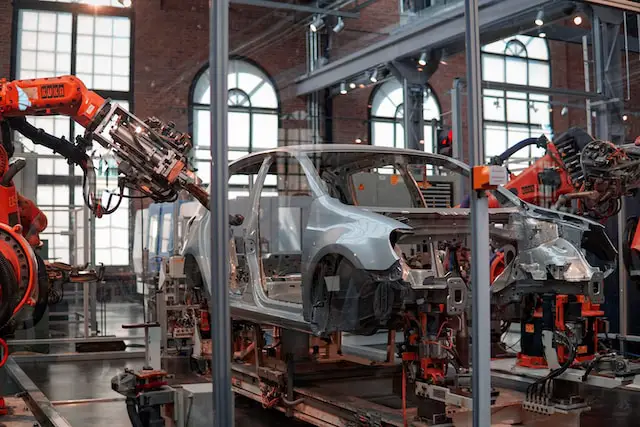Artificial Intelligence (AI) has emerged as a transformative force in various industries and automotive manufacturing is no exception. With its ability to analyze vast amounts of data adapt to changing conditions and perform complex tasks with precision AI is revolutionizing the way cars are designed produced and assembled. In this article we explore the incredible impact of AI in automotive manufacturing and how it is shaping the future of production.
Enhancing Product Design and Development
AI-powered algorithms are capable of analyzing customer preferences market trends and historical data to generate insights that inform the product design process. By leveraging AI automakers can create more innovative and customized vehicles that align with consumer demands. Virtual prototyping and simulations enable designers to iterate quickly test different configurations and optimize designs for performance safety and aesthetics.
Optimizing Manufacturing Processes
AI plays a crucial role in optimizing manufacturing processes improving efficiency and reducing costs. Machine learning algorithms analyze real-time production data to identify patterns anomalies and potential bottlenecks. Predictive maintenance systems leverage AI to monitor equipment health predict failures and schedule maintenance proactively minimizing downtime and maximizing productivity.
Robotics and Automation
AI-powered robotics are transforming automotive assembly lines. Collaborative robots or cobots work alongside human workers to perform repetitive and physically demanding tasks with precision. These robots are equipped with advanced computer vision systems allowing them to identify parts perform quality inspections and ensure error-free assembly. By automating labor-intensive processes AI-driven robotics enhance productivity and reduce the risk of human error.
Quality Control and Inspection
AI-based image recognition and machine vision systems are revolutionizing quality control and inspection in automotive manufacturing. These systems can quickly and accurately detect defects anomalies and deviations from specifications. AI algorithms analyze images or sensor data captured during production to identify imperfections ensuring that only vehicles meeting the highest quality standards reach the market.
Supply Chain Management and Predictive Analytics
AI enables automakers to optimize their supply chain management by analyzing vast amounts of data and predicting demand patterns. By considering factors such as market trends production capacity and supplier capabilities AI algorithms can optimize inventory levels streamline logistics and minimize lead times. This proactive approach ensures a more efficient and responsive supply chain reducing costs and improving customer satisfaction.
The Future of AI in Automotive Manufacturing
As AI continues to advance its role in automotive manufacturing is expected to expand further. With the emergence of autonomous vehicles AI-driven technologies will be crucial in areas such as sensor fusion real-time decision-making and intelligent manufacturing systems. AI-powered vehicles will not only enhance safety and performance but also create new business models and mobility solutions.
Embracing the AI Revolution
The integration of AI in automotive manufacturing represents a transformative shift that promises increased efficiency improved product quality and enhanced customer experiences. Automakers that embrace AI-driven technologies will gain a competitive edge by accelerating innovation streamlining production processes and delivering vehicles that meet the evolving needs of consumers.
The Road Ahead
As AI continues to shape the future of automotive manufacturing it is essential for industry stakeholders to invest in research development and talent acquisition. Collaborations between automakers technology companies and research institutions will drive the advancement of AI applications leading to even more remarkable breakthroughs in the industry.

Hi, I’m Jodie! I’m a spain-Moroccan writer with a passion for imagination, adventures, magic and stories with heart.
Please don’t hesitate to contact me for any questions, suggestions, comments or feedback.

















Add comment